Reports
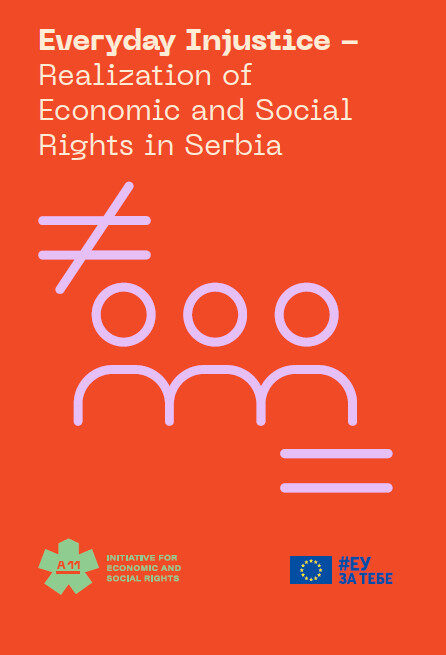
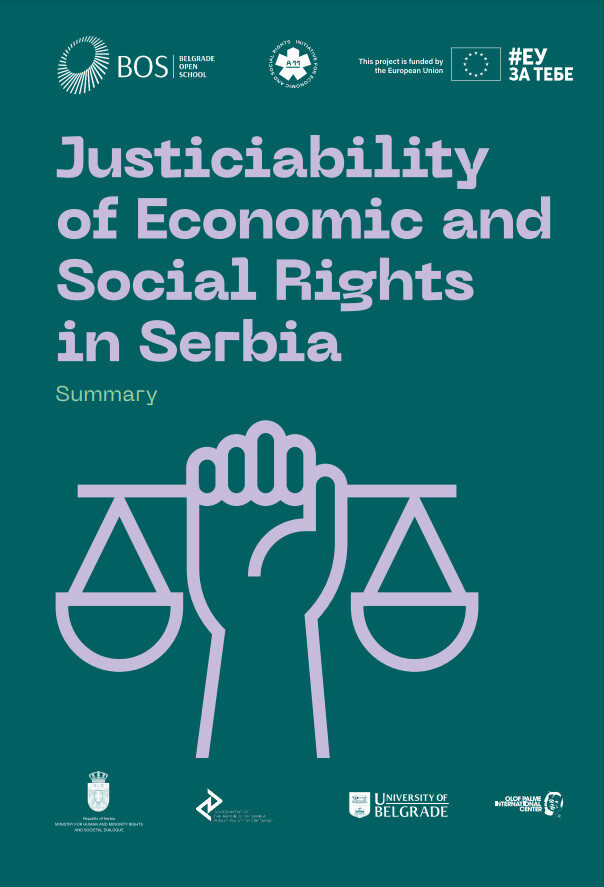
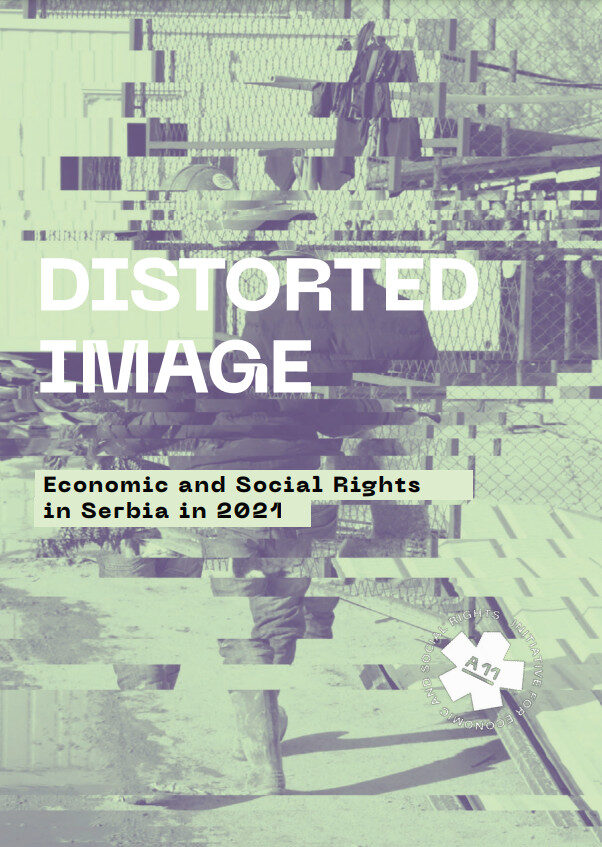
Distorted picture – Economic and social rights in Serbia
May 2022
This is the report of Initiative A 11, which shows the most significant novelties and challenges during 2021 in five key areas for realising economic and social rights – work, health care, social care, education, and housing.
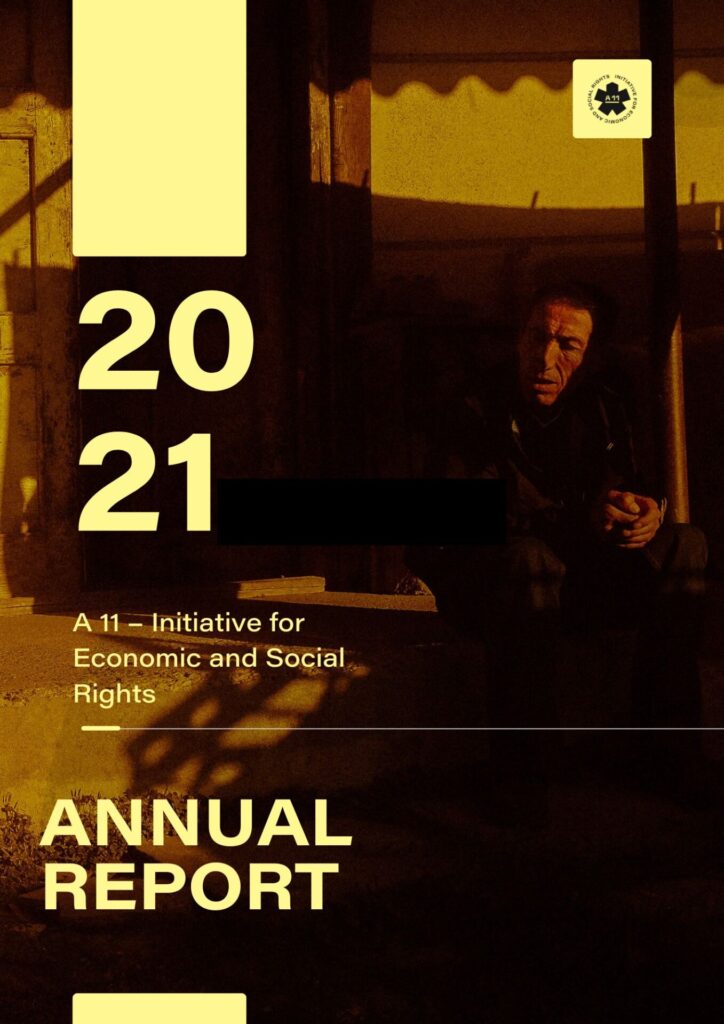
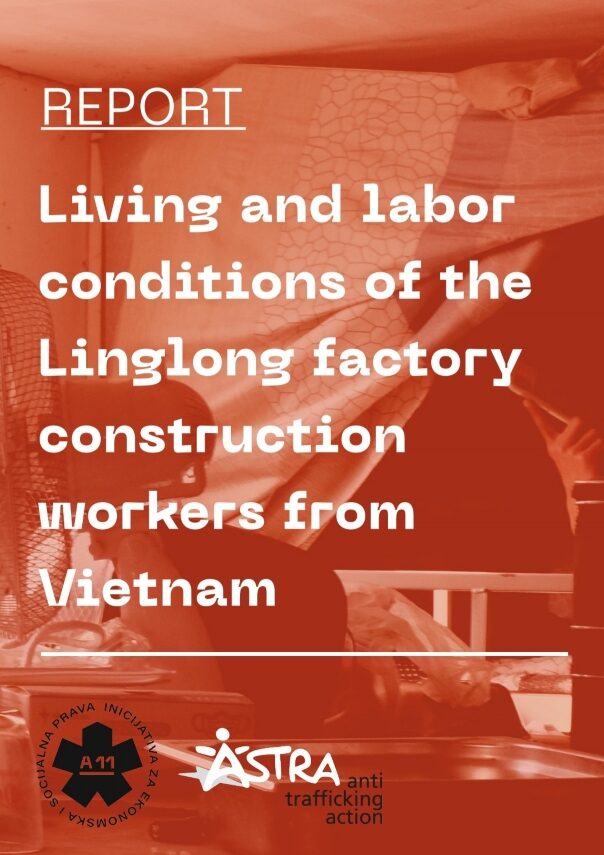
Living and labor conditions of the Linglong factory construction workers from Vietnam
November 2021
This joint report prepared by ASTRA and A 11 Initiative provides information about the living and working conditions of the Linglong factory construction workers from Vietnam, including information about their employment status, identified human trafficking indicators, the conditions of accommodation and information about their access to health care and the right to adequate housing
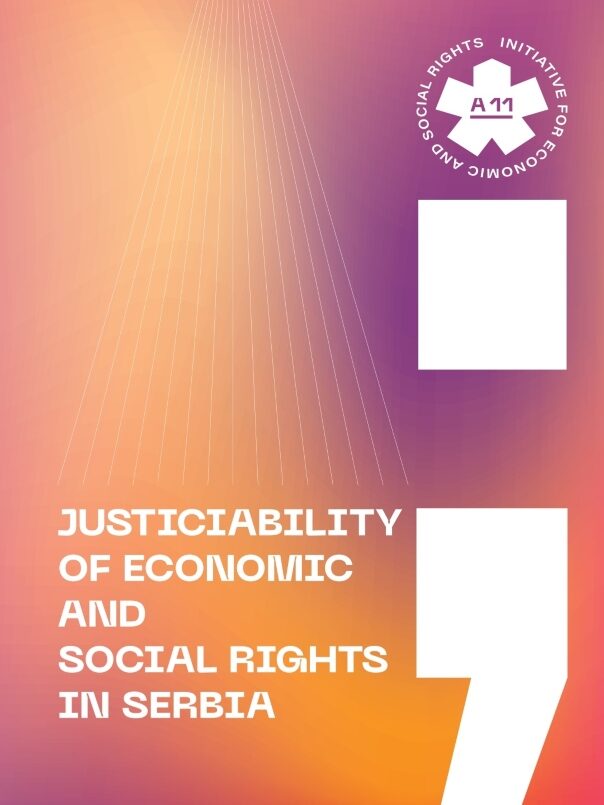
Justiciability of economic and social rights in Serbia
October 2021
A comprehensive analysis of the justiciability of economic and social rights in Serbia examines the extent to which economic and social rights are guaranteed and protected in Serbia as well as shortcomings of the existing protection mechanisms. Specifically, this analysis refers to the right to social protection, health care, work and housing. Starting from the identified shortcomings, the analysis points out the advantages that the ratification of the Optional Protocol to the Covenant on Economic, Social and Cultural Rights could have and examines possibilities of improving the mechanisms for the protection of economic and social rights in Serbia.
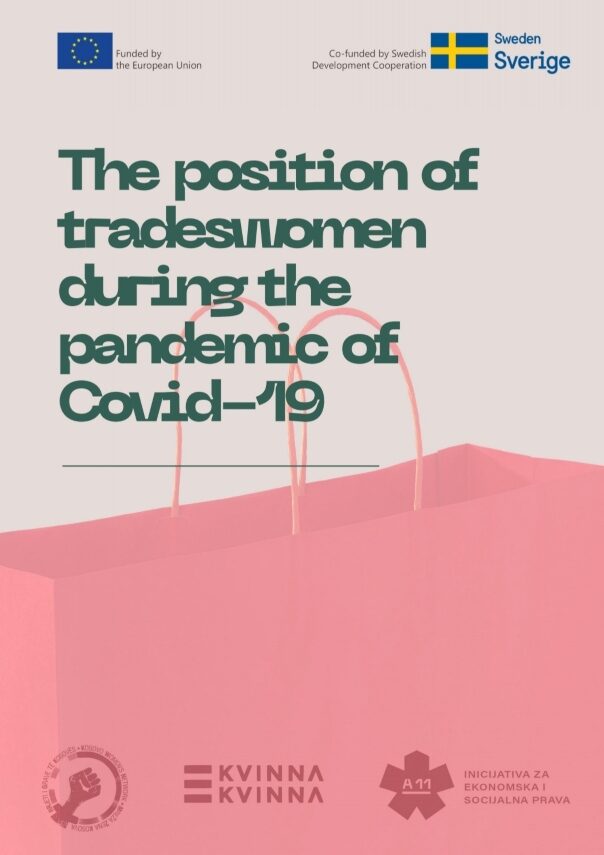
The position of tradeswomen during the COVID-19 pandemic
April 2021
This report presents the main findings of A 11 Initiative`s research on the position and the working conditions of tradeswomen during the COVID-19 pandemic. The report additionally indicates that the labour rights of trade workers regressed in the first year of the pandemic.
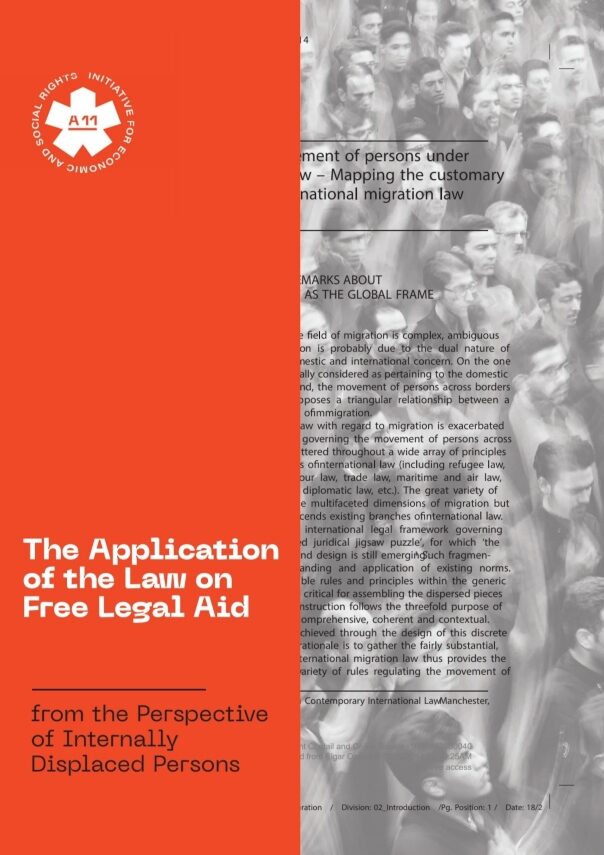
The Application of the Law on Free Legal Aid from the Perspective of Internally Displaced Persons
December 2020
This report is focused on the implementation of the Law on Free Legal Aid with special reference to internally displaced persons. After a short review of the provisions of the Law on Free Legal Aid, the report highlights the main challenges encountered by the most vulnerable citizens in their access to free legal aid, illustrated through case studies, findings and testimonies from focus groups with members of vulnerable groups.
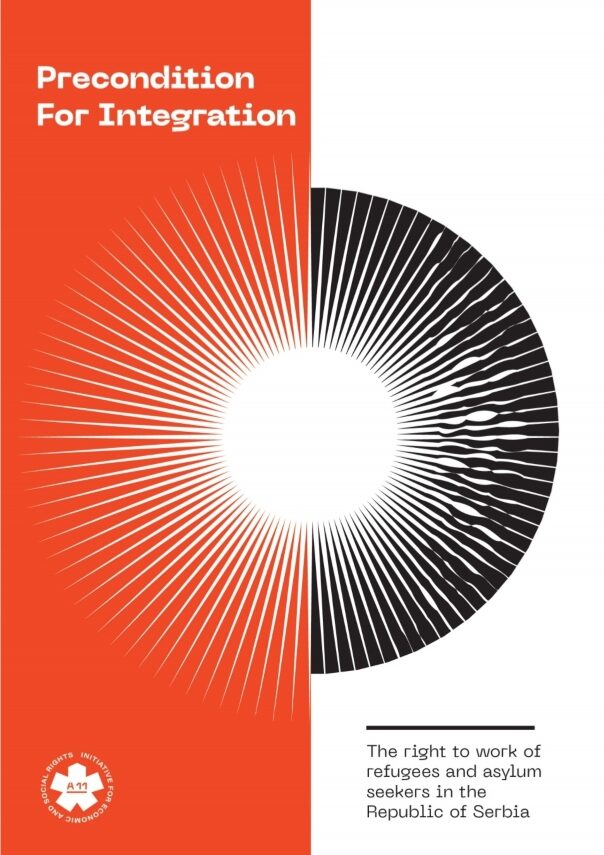
Precondition for Integration – The right to work of refugees and asylum seekers in the Republic of Serbia
December 2020
This report is focused on the right to work of refugees and asylum seekers in Serbia, as a precondition for their integration. The first part of the report gives an overview of the international and national framework regarding this issue, while the second one analyzes the right to work of refugees and asylum seekers in practice. After some statistical data in relation to the granted asylums and issued work permits, the report offers certain recommendations for improvement in this field.
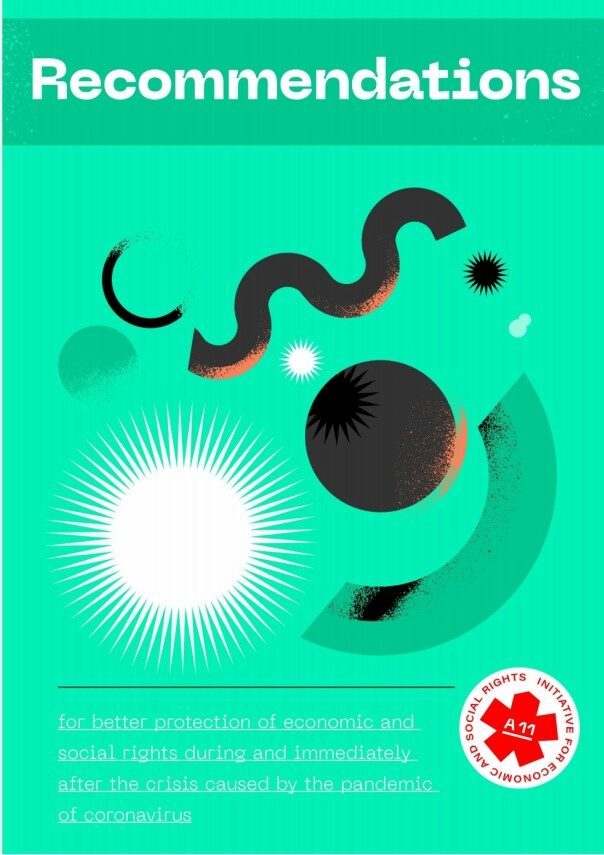
Recommendations for better protection of economic and social rights during and immediately after the crisis caused by the pandemic
August 2021
These Recommendations were conceived as proposals for opening a discussion about some of the key issues identified during the first wave of the crisis caused by the coronavirus. They can serve decision-makers, expert bodies and public authorities in proposing and creating new measures, and civil society organizations, trade unions, activist groups and others in creating activities aimed at promoting economic and social rights during the crisis caused by the COVID-19 pandemic.